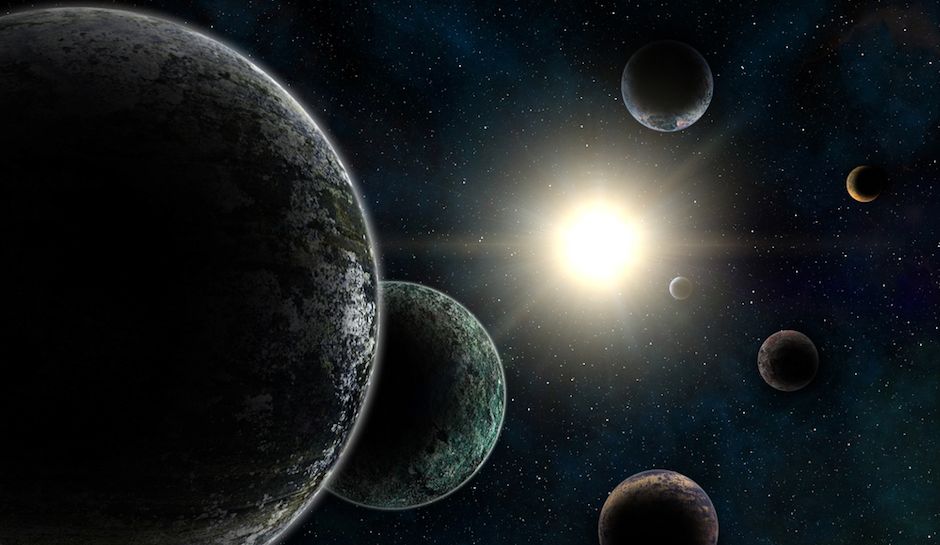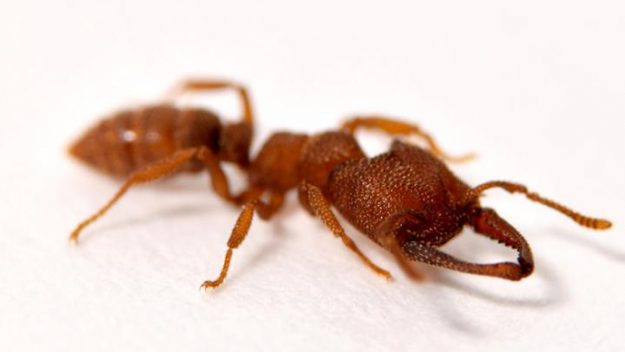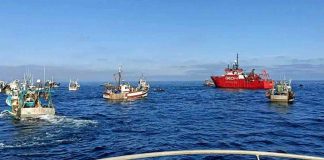
TRAPPIST-1 Planets Are All Rocky, Contain Significant Amounts of Water.
The U.S. space agency reports in a news release that researchers have found that some of the planets have as much as 250 times more water than can be found here on Earth.
The solar system home to these exoplanets — TRAPPIST-1 — is 40 light-years from Earth, or 235 trillion miles. The seven planets orbit a star that is 9 percent larger than our Sun. NASA says that planets closest to this massive star are more likely to have water than those further away.
An exoplanet is a planet that orbits a star in any solar system other than the one Earth calls home.
“The form that water takes on TRAPPIST-1 planets would depend on how much heat they receive from their ultra-cool dwarf star, which is only about 9 percent as massive as our Sun,” NASA reports in the release.
“Planets closest to the star are more likely to host water in the form of atmospheric vapor, while those farther away may have water frozen on their surfaces as ice. TRAPPIST-1e is the rockiest planet of them all, but is still believed to have the potential to host some liquid water.”
Some of the TRAPPIST-1 planets have as high as 5 percent of their mass consisting of water, according to the report.
The data regarding these planets were found using NASA’s Spitzer and Kepler telescopes with the findings being published in the Astronomy and Astrophysics journal.
When the space agency announced the discovery of the seven planets in February 2017, it touted the possibility they “could have liquid water — key to life as we know it — under the right atmospheric conditions.”
“This discovery could be a significant piece in the puzzle of finding habitable environments, places that are conducive to life,” Thomas Zurbuchen, associate administrator of the agency’s Science Mission Directorate, said in a statement at the time.
“Answering the question ‘are we alone’ is a top science priority and finding so many planets like these for the first time in the habitable zone is a remarkable step forward toward that goal.”
Flash-forward a year later, NASA reports the Hubble Space Telescope has studied six of the seven planets. Findings indicate that at least three of the planets do not have the “puffy, hydrogen-rich atmospheres like the gas giants of our own solar system.”
With at least three of the TRAPPIST-1 planets showing hydrogen-rich atmospheres, that means they would make them “hot and inhospitable to life.”
“The results, instead, favor more compact atmospheres like those of Earth, Venus, and Mars,” NASA writes in the release. To take a closer look, the Hubble team will conduct follow-up observations using ultraviolet light to track any potential hydrogen escaping from the planets’ atmospheres.
“We now know more about TRAPPIST-1 than any other planetary system apart from our own,” Sean Carey, manager of the Spitzer Science Center and co-author of the study, said in NASA’s release.
“The improved densities in our study dramatically refine our understanding of the nature of these mysterious worlds.”
As for what any of these findings mean for the future, NASA says it clears the way for the launch of its James Webb Space Telescope in 2019. It reports that this telescope will take a closer look at exoplanet atmospheres while looking for elements that could show whether life or habitable conditions were possible.
The space agency will use the Webb telescope to characterize the different atmospheres of the TRAPPIST-1 solar system. NASA expects that each planet “possess a range of atmospheres, just like the terrestrial planets in our solar system.”













